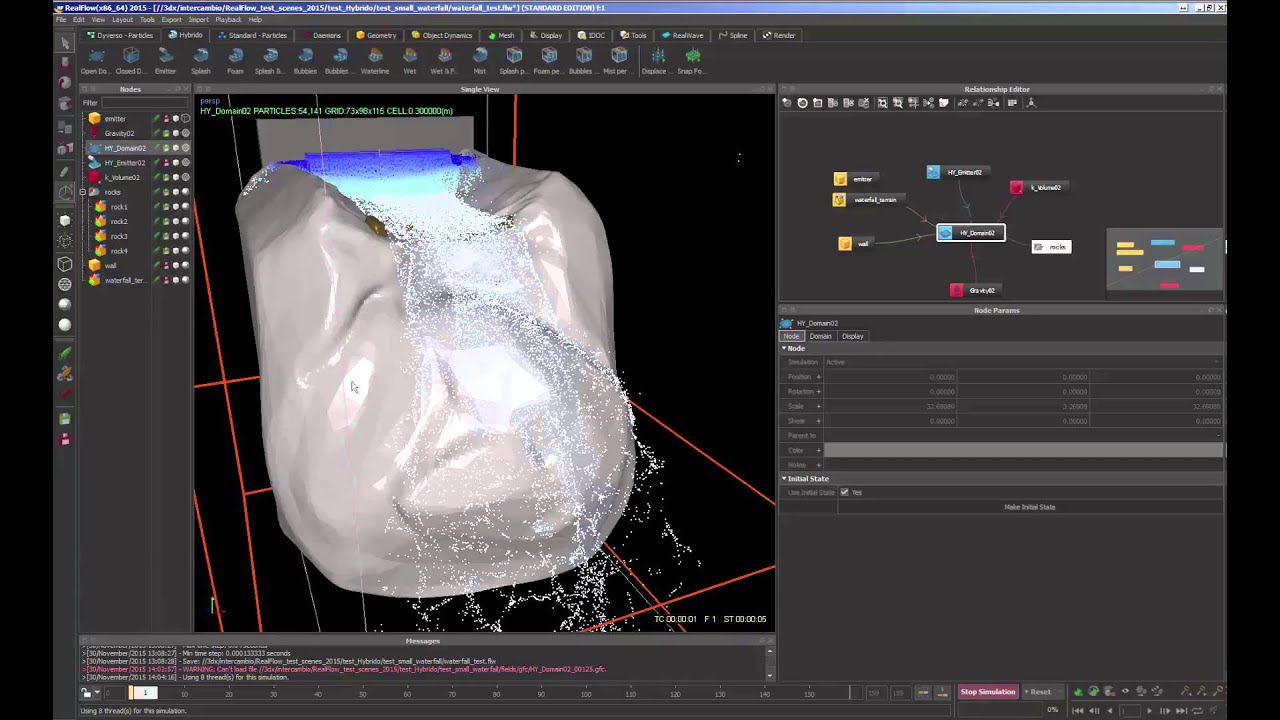

This exclusive feature of RealFlow | Cinema 4D 2.0 lets you decide down to the finest detail where and how particles are killed.Īlembic is now the only output format for RealFlow | Cinema 4D. This Cinema 4D deformer lets your objects adjust their shape to RealFlow particles.Ĭinema 4D falloffs are now part of RealFlow force daemons, making them more customizable than ever.

Give your particle instances a more natural look thanks to their variation on position, rotation and scale. Excellent for fine tuning your mesh until you are happy with its look.ĬHILD OBJECTS FLUID’S RANDOM TRANSFORMATIONS Only mesh your fluids without resimulating everything again. You can have more than one scene in case you want to test different variations of your sim, or multiple independent takes for the same project.Īvoid the emission of particles inside objects colliding with the fluid.ĭecide which fluids will collide, set multiple collider tags for the same object or use textures to control collider parameters like the friction. No matter if it is for collisions or emissions. Make sure RealFlow always sees your Cinema 4D object exactly the way you want it to.
REALFLOW 2014 KEYFRAME PARTICLE PLUS
This includes not only liquids but all of our multiphysics materials (granular, viscous, viscoelastic) plus rigid and elastic. Now it is possible to mix fluids with different properties. Interaction between different fluids in the same scene.

In other words, you no longer have to worry about network dependencies, permissions, or IP issues. Simplified Workflowįorget about going back and forth between 3D platforms. So, you get the best in fluid simulation quality and performance, with an easy workflow. Indeed, RealFlow | Cinema 4D 2.5 is built on RealFlow’s 10 Dyverso multiphysics solver. Why use Next Limit RealFlow | Cinema 4D? Serious High-Performance Fluids I am a 3D Generalist / Motion Graphics Artist working at Reel Pictures, Melbourne Australia.Next Limit RealFlow | Cinema 4D gives you the best in fluid simulation, directly inside Cinema 4D. Yannik on Youtube: /channel/UCMTy4sST_o-PsI9PM3RDQjQ The finished sims for those will be uploaded soon!!įind out more about the Sandy Solver by following Yannik F: This pass makes it easy to see the insanely cool fracturing of the Particles that is happening in realtime – as in, the sand particles are clumping and breaking apart during the simulation based on artist-driven settings.įor some of the tests I have included a screenshot of the RealFlow settings, showing the Frame rate, Substeps, scene scale, emitter used and the Sandy Settings.Īnd I included a couple of tests that failed at the end – playblasts from 3ds Max.
REALFLOW 2014 KEYFRAME PARTICLE FREE
Using this mode, Yannik has set the particles to display initial structures, free particles, and the secondary (resting) structures. One using the default ‘velocity’ display for the particles and a second pass using the ‘temperature’ display mode. I'm still trying to get it right :)įor some tests, I show 2 previews of the same sim. The SandySolver has it's own 'accuracy' settings though, so you can get very stable results using Sandy even with low RealFlow substeps. Higher substeps + particle count will remove this. So you can see a lot of erratic particles in some of these tests. I also used very low substeps – in many cases 1-40 substeps per frame. The particle count for each test varies between 20,000 – 400,000 particles.

I made these tests using SandySolver v1.0 and the latest (at the time) RealFlow 2014 8. Sandy Solver is a granular solver developed by the very talented Yannik F and currently available as a particle-solver plugin for RealFlow. This is a collection of my first tests using the SandySolver.


 0 kommentar(er)
0 kommentar(er)
